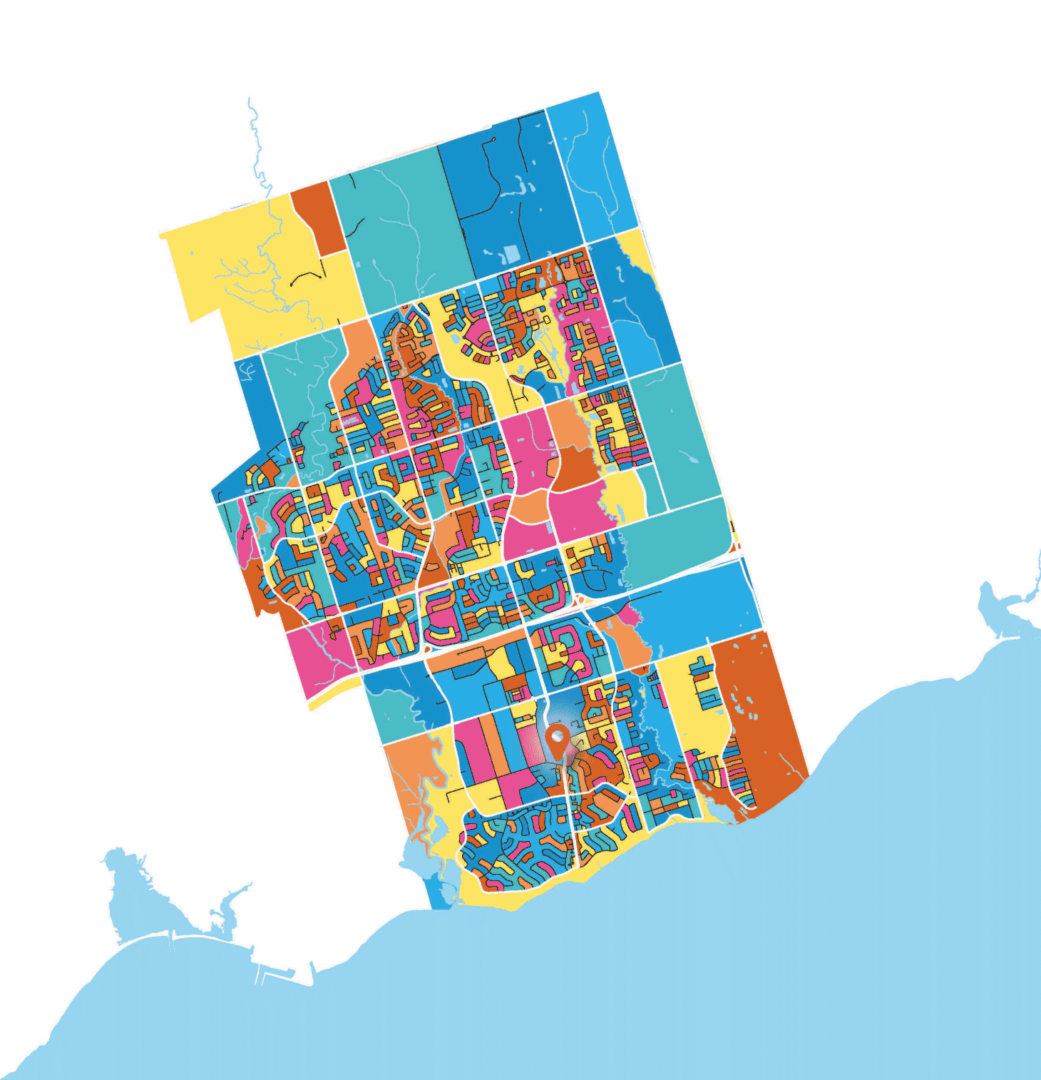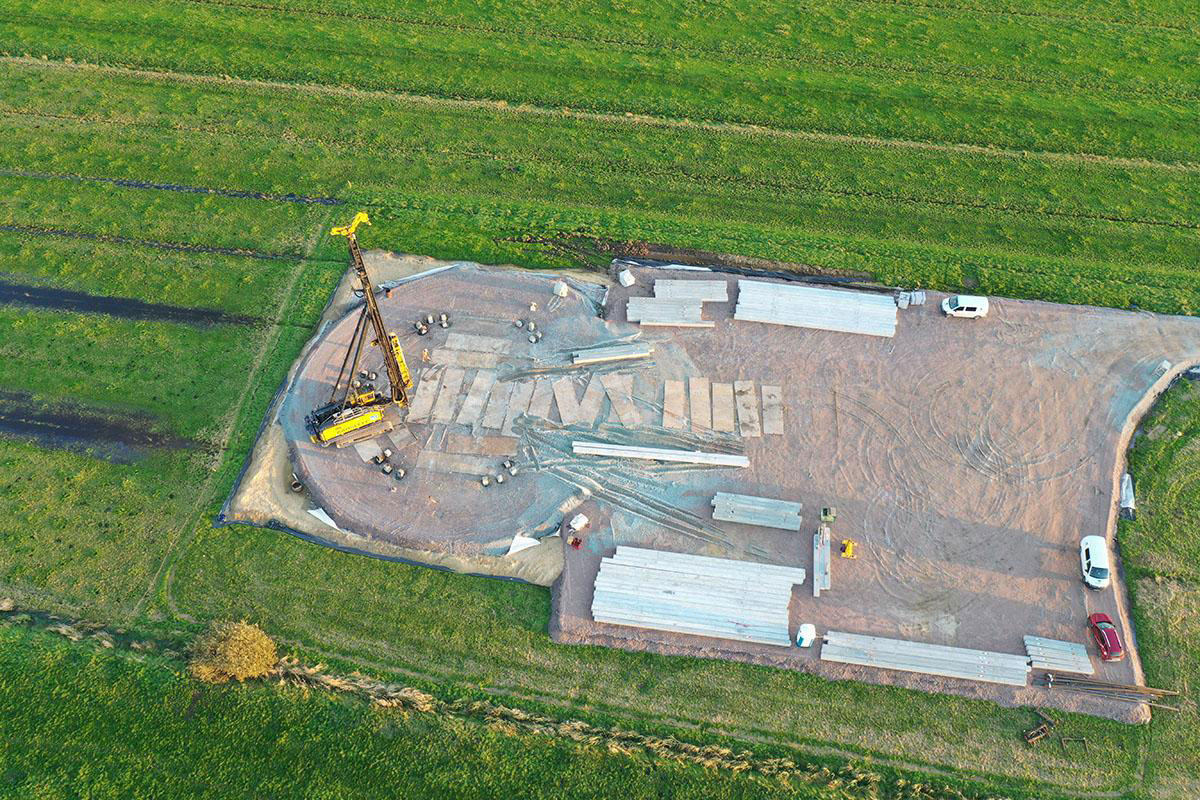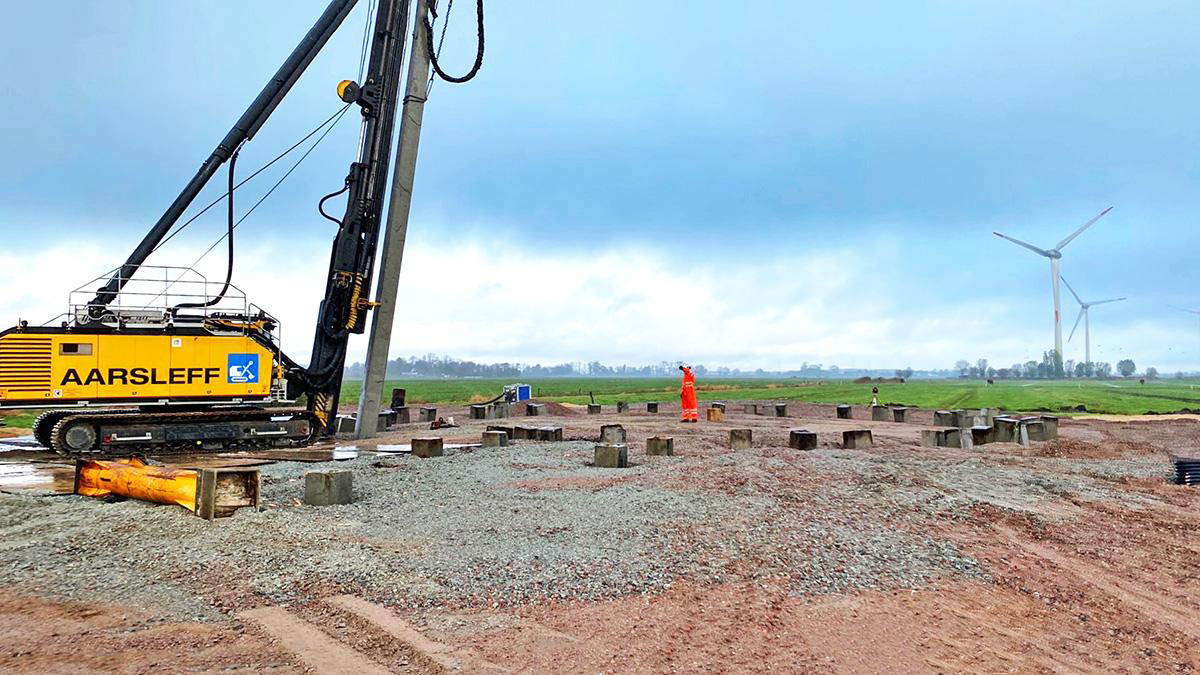
Greening the supply chain: Balfour Beatty shares key recommendations to help the industry achieve net zero
Balfour Beatty has partnered with the Supply Chain Sustainability School for the second year in a row, undertaking a joint survey targeting hundreds of supply chain partners across the U.K. to understand the barriers and opportunities faced in decarbonising the sector.
Recognizing the important role that the construction and infrastructure sector has to play in achieving net zero, the company has set out its findings and recommendations for policy makers, customers and the industry more widely in its latest thought paper called, “2022 Greening the Supply Chain.”
Despite the positive steps that have already been taken across the industry, achieving net zero is not a foregone conclusion, with 68 per cent of respondents saying that the sector is not well enough prepared, 53 per cent saying that the development pipeline for low-carbon materials is not sufficient to meet demand and 81 per cent indicating that construction practices are changing too slowly.
In addition, 96 per cent of those who responded say they are experiencing a shortfall in access to skilled people, specifically relating to carbon, sustainability, digital and other related roles, which risks holding back efforts to decarbonize the sector.
In “2022 Greening the Supply Chain,” Balfour Beatty highlights the importance of bringing in supply chain partners earlier to put in place the best, low carbon solutions. An area that also requires more focus is the creation of robust measurement and up-to-date reporting standards – these are key for consistency and driving forward progress.
Balfour Beatty will now take the learnings from the survey to understand what more can be done to support the industry in tackling the barriers it currently faces, bringing its supply chain on the journey and encouraging other industry partners to do the same.
Jo Gilroy, group director of sustainability at Balfour Beatty, said, “The global climate change emergency is one of the biggest challenges that we have ever faced. It is a challenge requiring us to all pull in the same direction, together.
“With approximately 80 per cent of the sector’s carbon emissions stemming from our supply chain, it is becoming increasingly important to understand the barriers our partners face and where they need more support. By sharing our findings and learnings, we hope that the sector will move forward more quickly – together – in achieving net zero.”
DFI announces board of trustees election of a new president and secretary
The DFI Board of Trustees has elected a new president and a new secretary.

Incoming DFI president Gianfranco Di Cicco is president and CEO of Bauer Foundations, responsible for the Bauer Group on all U.S. construction operations. Di Cicco joined the DFI Board of Trustees in 2010 and was elected to the executive committee in 2016, while actively participating in several technical committees.
After participating and directing major worldwide geofoundation projects with the Rodio Group in Italy, Iraq, Singapore, and Brazil from 1980 to 1989, Di Cicco moved to the U.S. to start a new operation for the Rodio Group as executive vice president. In 1997, he joined Trevi Group as a senior area manager and COO. Between 1989 and 2005, he was responsible for proposal study/preparation, supervision and direct management of challenging multi-million-dollar foundation projects for private and government agencies, including the U.S. Army Corps of Engineers’ Beaver Dam project and seepage and foundation rehabilitation for the Walter F. George Dam, as well as major geotechnical contracts for Boston’s Central Artery. In 2005, he started his own consulting company, GDConsulting, providing contractual, constructability and foundation technology services worldwide to contractors, equipment and material manufactures, engineers, owners, and public and private organizations.

Lori Simpson, P.E., G.E., managing principal at Langan, is the incoming secretary for the DFI Board of Trustees and the first woman on DFI’s executive committee. She has been a trustee since 2016 and is an active member of DFI’s Codes and Standards Committee. With almost 30 years of experience, Simpson specializes in geotechnical engineering on sites with challenging subsurface conditions that include liquefaction, consolidation, expansion potential, caving soil, shallow groundwater and highly variable stratigraphy. Her projects are in a wide range of sectors, including high-rises, multi-family residential, commercial, sports facilities, educational and laboratory research facilities, affordable housing, schools, bridges, piers, infrastructure and public open space.
Serving with Di Cicco and Simpson as officers of the DFI Board of Trustees are James O. Johnson, Condon-Johnson & Associates, as vice president; and Erik Loehr, Ph.D., P.E., University of Missouri, as treasurer. Michael Wysockey, Ph.D., P.E., Thatcher Foundations, is now the immediate past-president.
PCL Construction announces Jason Idler is the new heavy industrial chief operating officer

PCL Construction is pleased to announce that Jason Idler is promoted to chief operating officer and will lead the organization’s heavy industrial sector as part of the organization’s overall succession planning strategy. Idler succeeds Roger Keglowitsch who is retiring after 30 years of service with PCL.
“[Idler] possesses a wealth of knowledge in the heavy industrial world,” said Dave Filipchuk, PCL’s president and CEO. “His deep experience and substantial knowledge of our operations across North America will be essential as he works to extend our reputation as industry leaders. We are proud to welcome him to the PCL office of the CEO leadership team.”
Idler brings a bachelor’s degree in electrical engineering from the University of Saskatchewan and more than 30 years of experience to his role. Joining the PCL family of companies in 2008 as vice president of PCL Intracon Power, he was appointed regional vice president in 2013. The next year he joined the board of directors and assumed executive sponsorship for large-scale industrial projects, some of the largest PCL has executed among them. In 2017, Idler was named executive vice president for Canada and then president of U.S. heavy industrial operations, based in Houston, Texas.
Idler is responsible for PCL’s portfolio of work in the oil and gas, power, renewables, chemical and petrochemical markets. He works with a team of regional executives to oversee all aspects of project planning and delivery including oversight of engineering, project controls, quality, procurement, construction execution, risk management, and health, safety and environment.
He is deeply involved not just in the work of construction, but also in how PCL partners with clients and stakeholders to build a sustainable energy and resource future. For him that means attention to people, to community and to PCL’s role in energy transition. From planning to fabrication to execution and ongoing maintenance, Idler, along with the entire heavy industrial group, promises clients a fully tailorable project solution.
Two PCL projects take home global accolades
Two groundbreaking projects built by PCL Construction that left a remarkable imprint on the construction industry have won Global Best Project Awards from Engineering News-Record (ENR). Lakeridge Health’s new long-term care home, Lakeridge Gardens, in Ajax, Ont., is being recognized as the Best Health Care Project and CityHousing Hamilton’s 500 MacNab Street North (Ken Soble Tower) in Hamilton, Ont., is recognized as the Best Green Project.

The ENR Global Best Projects Award recognizes one-of-a-kind projects from around the globe that have a unique focus on the challenges, risks and rewards of designing and constructing in other countries. A panel of industry leaders sifted through a robust slate of entries to select 34 winning projects from 18 countries on six continents that demonstrated excellence in design and construction quality, innovation and safety performance.
Lakeridge Gardens is the first project to be completed under Infrastructure Ontario’s Accelerated Build Pilot Program, built in only 13 months during the height of the global pandemic.
The Accelerated Build Pilot Program leverages hospital-owned land and accelerated construction techniques to get shovels in the ground quickly. Lakeridge Health, Infrastructure Ontario, PCL and trade partners worked collaboratively to deliver this 320-bed, six-storey long-term care home in record time. Rapid procurement, design/schedule innovation, lean principles and a modular kit-of-parts approach were crucial to bringing Lakeridge Gardens to life years faster than a traditional build.

To showcase the innovative collaboration behind the project and to provide insight into the strategy that enabled the care home to be built in months instead of years, PCL released a short documentary along with a complementary timeline.
“The outcome of this project and receiving this incredible global recognition is credited to outstanding collaboration between Lakeridge Health, Infrastructure Ontario, G Architects, Parkin Architects, the government and all of our partners whose passionate pursuit of providing residents with a modern, comfortable and safe place to call home enabled such a success,” said Marc Pascoli, senior vice president and district manager of PCL Toronto. “Congratulations to everyone involved. Together, we have left a positive impact on the community for years to come.”
Ken Soble Tower is one of the largest multi-residential Passive House retrofits (EnerPHit) in the world.
Originally built in 1967, the 18-storey, 80,000 square-foot, 146-unit affordable seniors’ housing complex is one of the most ambitious social-housing transformations in the country, paving the way for the nation’s aging housing supply to secure a healthy, resilient future for thousands of Canadians.
The integrated consultant team, predicted that on completion, this building’s annual heating energy demand would decrease 91 per cent, annual primary energy demand would decrease 78 per cent and greenhouse gas emissions would decrease 94 per cent. In the end, performance predictions were exceeded.
“This project’s impact reaches beyond construction; 500 MacNab (Ken Soble Tower) is a sustainable and innovative way to provide livable homes for the community,” said Pascoli. “This accomplishment reflects the expert rigor, best practices and collaborative efforts between CityHousing Hamilton, ERA Architects, PCL and our consultants and trade partners. Congratulations to the entire team.”
Junttan PMx28 used for Siemens Gamesa Renewable Energy wind farm project
The municipality of Nortorf in Schleswig-Holstein, northern Germany, is getting some of the most powerful wind turbines worldwide, which will supply more than 10,000 households with electricity in the future. Aarsleff Grundbau GmbH was commissioned in early 2022 with the foundation work for the new wind farm for Siemens Gamesa Renewable Energy and its 5.X turbines are the first in Germany, which will be among the largest onshore units in the country.
In total, Aarsleff installed 102 pieces of joined 40×40 Centrum Pfähle piles with their Junttan PMx28 pile driving rig in early 2022. The length of the joined piles was 23 metres with the top piles being 17 metres with a high degree of reinforcement.
“When it comes to wind power, we were able to make optimal use of our many years of experience to become part of the project. Wind power has been with us from the very beginning,” said Bahne Jeß, sales manager of Aarsleff Grundbau GmbH.
A particular challenge with this deep foundation was the difficult soil conditions of the Wilstermarsch, where the piles had to penetrate a soft, watery layer of clay.
“For the Nortorf wind farm project, where 40×40 piles were installed, Junttan was the best machine we could use,” said Jeß.
The first turbines will be installed this summer.


Building permits in Canada dropped last fall
According to the latest Statistics Canada report, the total value of building permits in Canada fell 17.5 per cent in September 2022 to $10.2 billion, the largest recorded monthly decline. This was the first time all survey components posted monthly decreases since September 2019. The residential sector declined 15.6 per cent (to $7 billion) and the non-residential sector declined 21.5 per cent (to $3.2 billion).
On a constant dollar basis, the total value of building permits dropped 17.8 per cent to $6 billion.
Multi-family component drags down residential sector
The value of residential permits decreased 15.6 per cent to $7 billion nationally in September 2022, with a similar decline (16 per cent) in the number of units being built.
The value of building permits in the multi-family component tumbled 21.2 per cent. The drop was most significant in Ontario, which fell 39.6 per cent following a record high in August. While August saw the submission of four permits valued at over $100 million in Ontario, including one for $480 million, there were no permits in September to break the $100 million mark.
Construction intentions in the single-family homes component declined 7.7 per cent. Seven provinces posted decreases, with notable declines in Ontario (seven per cent), Manitoba (35.1 per cent), and Alberta (15.9 per cent).
Non-residential sector down across all components
The total permit value of the non-residential sector decreased 21.5 per cent to $3.2 billion in September 2022. The institutional component, after three consecutive monthly increases, dropped 37.2 per cent in the same month.
Construction intentions in the commercial component fell 11.5 per cent, with decreases posted in nine provinces. The two provinces to post gains were British Columbia (37.9 per cent), after three consecutive monthly declines, and Quebec (22.3 per cent), after posting the lowest value of the year in August.
The value of building permits in the industrial component declined 23.4 per cent, reaching the lowest point since late 2021, and has been on a downward trend since.
Third quarter construction intentions slow down
The total value of building permits in the third quarter of 2022 decreased 6.3 per cent to $33.7 billion after three consecutive quarterly increases.
The residential sector declined 5.6 per cent in the quarter, with decreases posted in all provinces, returning the sector to historic levels following a strong second quarter. Single-family permits declined nine per cent, while multi-family permits were down 2.6 per cent.
Overall, the number of new units slated for construction in the residential sector declined 7.4 per cent. Much of the decrease (7.8 per cent) stemmed from the multi-unit component as it reached its lowest point since the third quarter of 2020. Single-family intentions saw a 6.2 per cent decline.
The non-residential sector saw a 7.9 per cent decrease to $10.8 billion, with declines in all components.
The industrial component saw the biggest decline (19.3 per cent) in the sector, after reaching a new record high in the first quarter of 2022. The commercial component decreased 1.8 per cent after six consecutive quarterly increases. The institutional component continued to cool off with a 10.1 per cent decline after nearly hitting the $4 billion mark in the first quarter of 2022.